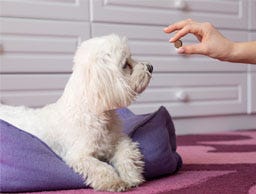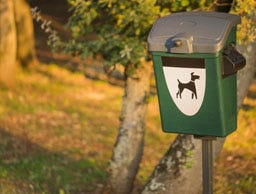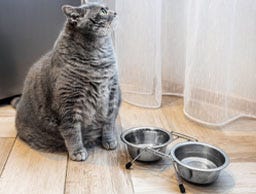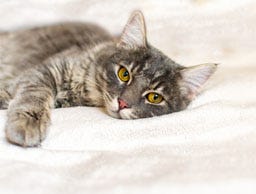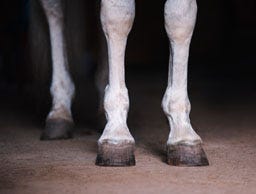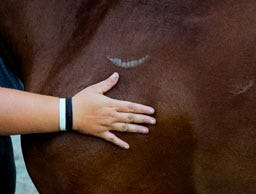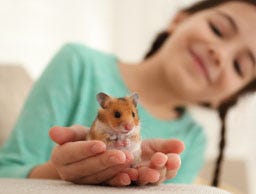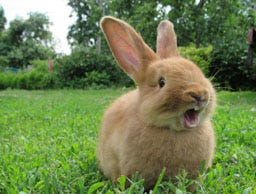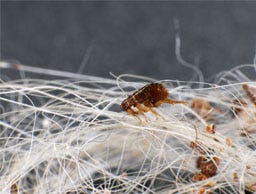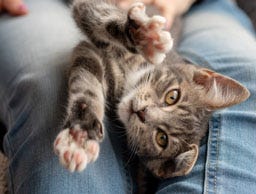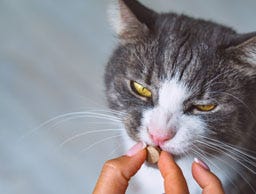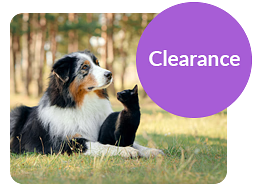The Beginners Guide to Bird Care
While it’s hard to determine the exact moment humans decided to open their hearts to a feathery friend, it’s thought birds have been a companion for humans for as long as 2,500 years! And it’s no wonder why.
Birds can make one of the most wonderful and rewarding pets for owners who want something a little more unconventional and are willing to put in the work. That’s why we’ve put together this guide for understanding the basics of bird care so you can keep your feathered friend happy and healthy while having a companion for life!
Contents:
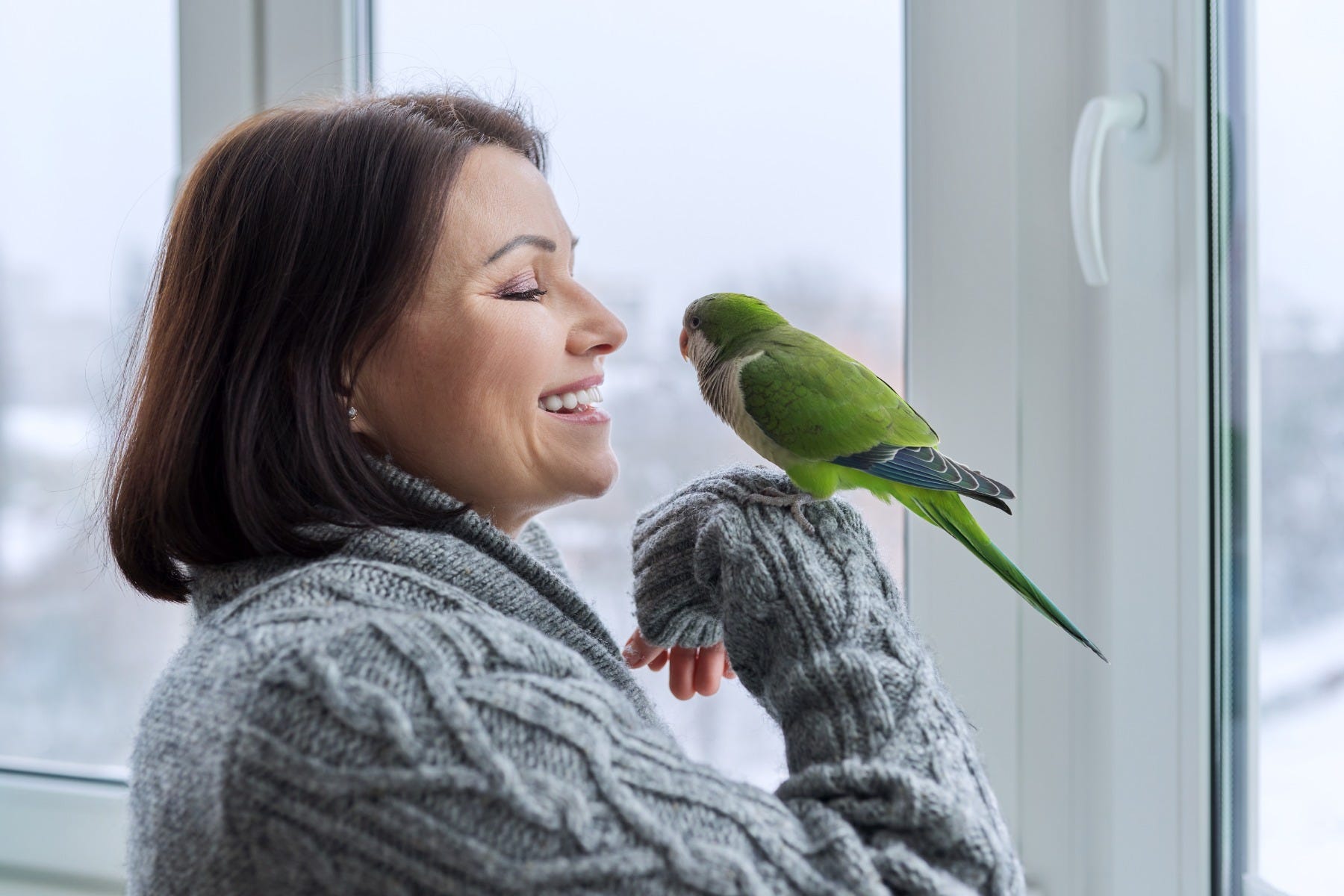
What Birds Can You Keep as Pets?
There is a range of birds that are available to keep as a pet, many of which have been specifically bred in captivity to be companion animals and would not survive in the wild. These birds come in a wide variety of sizes, shapes and colours, and each offers their own unique personality and has their own needs.
Some of the most popular pets birds inlcude:
- Canaries
- Finches
- Parakeets
- Cockatiels
- Lovebirds
- Parrotlets
- Quaker Parrots
- And many more!
What bird you choose may depend on a few things, such as your own personal preference, the space you have available, and how companionable you want your bird to be.
Can You Keep Wild Birds as Pets?
While there are a great many birds that can be kept and make for wonderful pets, some people find themselves drawn to wild species of birds that are found in the UK. However, the Wildlife and Countryside Act 1981 protect wild birds (Including their nests and eggs) in the UK from:
- Being killed, injured or taken from the wild.
- Any nest being intentionally taken, damaged or destroyed while in use or being built.
- Having possession or control of any wild bird, dead or alive, or any part of a wild bird, which has been taken in contravention of the Act or the Protection of Birds Act 1954.
- Using traps to injure or take wild birds
This legislation is in place to protect wild birds, and while there are some exceptions, it is illegal to own any wild bird without an appropriate licence, valid reasoning (such as the bird being disabled and unable to survive in the wild), or if you are not giving it adequate care.
There are plenty of birds available as pets that are legal to keep, and you can learn more about the protection of wild birds from charities like the RSPB.
Things to Consider Before Getting a Pet Bird
Birds can make wonderful companions who bring a wealth of life, colour and personality into your home, but as they’re considered “Exotic Pets”, there are a few things you need to consider before you choose to get a pet bird.
- Cost - Birds are not cheap pets, either to buy them initially or to keep. They need a rich and nutritious diet and a suitable enclosure, some of which can cost upwards of £100, although cheaper ones may be available for certain types. There are also toys and enrichment to consider, as well as healthcare, as birds should be seen by an avian-specific veterinarian, which not every surgery will have to hand, though they can likely recommend one.
- Noise - Birds are known for all the noises they can make, from jaunty little songs to bizarre squawks and even some which can talk. Birds tend to be early risers, making them living alarm clocks with no snooze button. You should always consider if you’re prepared for a noisy pet and whether owning one could cause any problems for you, your household, or any neighbours you may have.
- Space - Even if you choose a small breed of bird and go for the minimum size requirements for their cage, you still need to have a space in your home where they can be let out to play and spread their wings, so to speak. Birds kept in their cages full time can easily become depressed as they aren't getting the exercise and mental stimulation they need.
- Commitment - Every bird is different, and much like dogs, their size will play a factor in how long they’ll live. Birds are known to have a lifespan of anywhere between 4 and 100 years, so you need to consider how long you’re willing to care for a pet bird, and for some species, it can be a lifetime.
- Research - Every species of pet has its own specific requirements, and what it takes to care for a dog will be incredibly different from what it takes to care for a bird. These are things you need to be aware of by researching and understanding their individual needs, from nutrition to play and healthcare. Are you ready to learn everything you need to keep a pet bird for their whole life?
If you’ve considered these variables and still think that a bird is the right pet for you ad are ready to learn what is necessary to care for them, then look no further, as we’re about to go over the basics.
The Basics of Bird Care
The basic aspects of what any pet needs to live a happy and healthy life are pretty universal, such as appropriate food, exercise, shelter and healthcare, but there are also a few needs that birds have that differ to that of a cat or a rabbit. Here we’re going to go over the absolute basics of what you need to care for your bird, but we encourage you to do further research before you buy or rescue a bird, as different breeds will have different needs.
Enclosure
Much like any caged pet, the cage you choose for your bird is an important factor in their everyday health and well-being, from the size of the cage to what it’s made of.
As birds vary in size, so do the cages available, but as a general rule of thumb, your bird’s cage should be big enough to allow for free movement and flight. This doesn’t mean the taller, the better, but the opposite. As birds don’t fly directly up, they’re better off with a wide cage that allows them to fly inside comfortably.
Birds shouldn’t spend all their time inside a cage, but have space to freely either indoors or in a sufficient aviary set up to keep them safe.
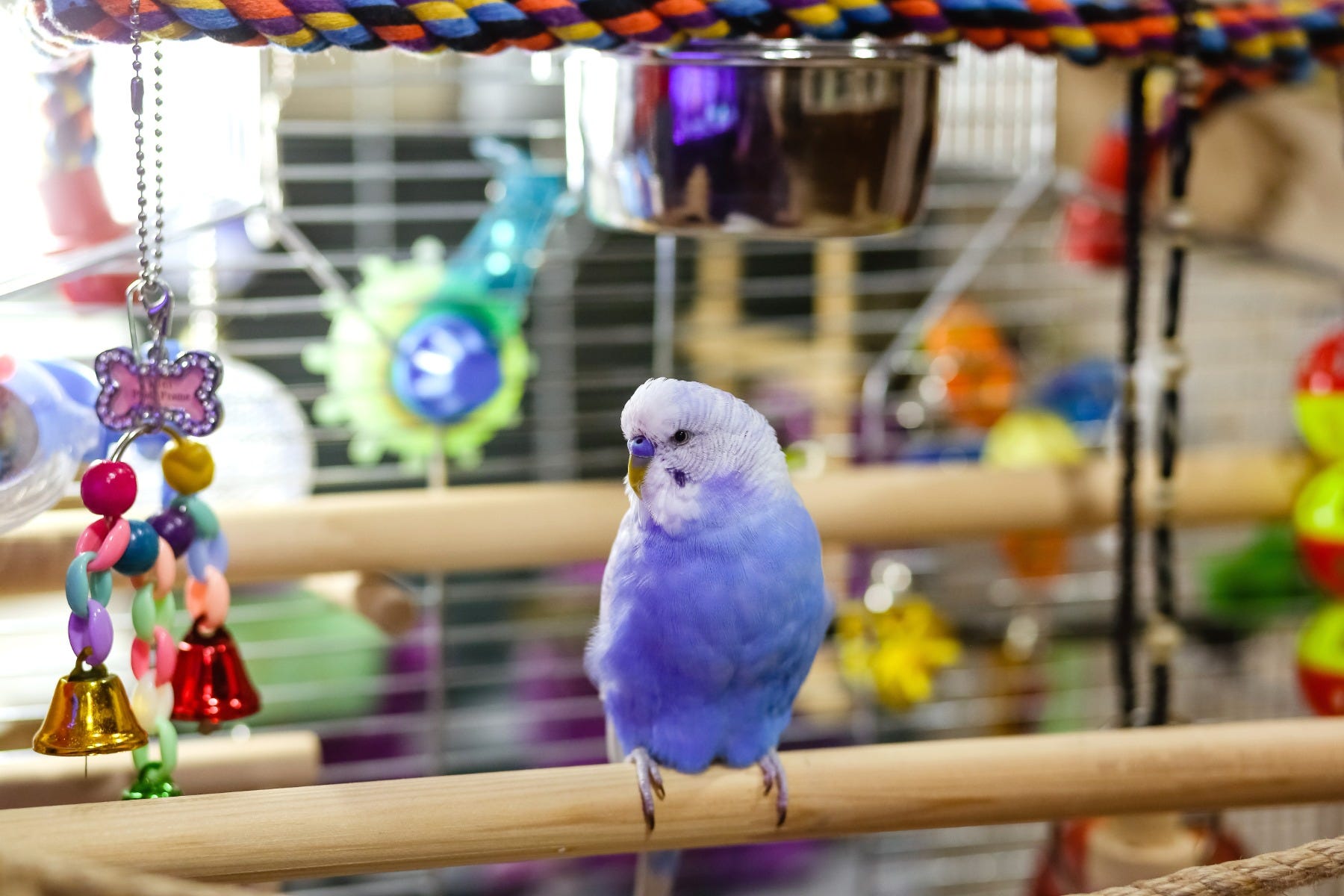
Here are some tips on choosing the right cage for your bird:
- Find a cage that is durable, such as stainless steel, and that the bars are close enough together that your bird can’t squeeze through.
- Find a cage that is twice as wide are your bird’s wing span at a minimum, and if you are keeping more than one bird in a cage, double that, as there will be multiple birds trying to fly in the same space.
- Look at the bottom grate on the cage and make sure it is easy to clean.
- Make sure there is enough space in your bird’s cage for all the furnishings (Which we’ll get to in a moment) to fit in while still allowing room to fly.
Birds are very sociable, so try and find a spot in your home to put their cage where they can be a part of the excitement, like a living room or dining room where people spend a lot of their time during the day. Try and avoid any areas with drafts or direct sunlight, as some birds don’t respond well to temperature changes, and don’t put your bird’s cage anywhere that might have a lot of smoke, steam, or dust (such as kitchens or garages) as they have sensitive lungs that can easily become irritated by smoke or strong odours.
The bottom of your bird’s enclosure should be lined with either recycled newspaper bedding or liners designed for bird cages which need to be replaced at least every other day.
Every bird cage should have, as a bare minimum, the following furnishing:
- Bowls - Birds need a separate bowl for their food and water, as well as a separate water bowl which they’ll use for bathing. Some pet shops will sell bowls specifically designed for bath bathing, which are less likely to spill.
- Perching Spots - Every bird loves to perch, so it’s important their cage has a couple of perching spots available at different heights in their cage (and out of it). These should be made of natural materials. Wooden perches will often double as chewing posts for your bird, and these will need to be replaced regularly. Perch sizes are also dependent on your bird’s size. There should be a ¾-inch gap between the bird’s front and rear nails when they’re perched.
- Toys - Birds need a lot of mental stimulation, and their cage should have plenty of toys they can play with to stop them from becoming bored. We’ll go into more detail about the types of toys available in a moment.
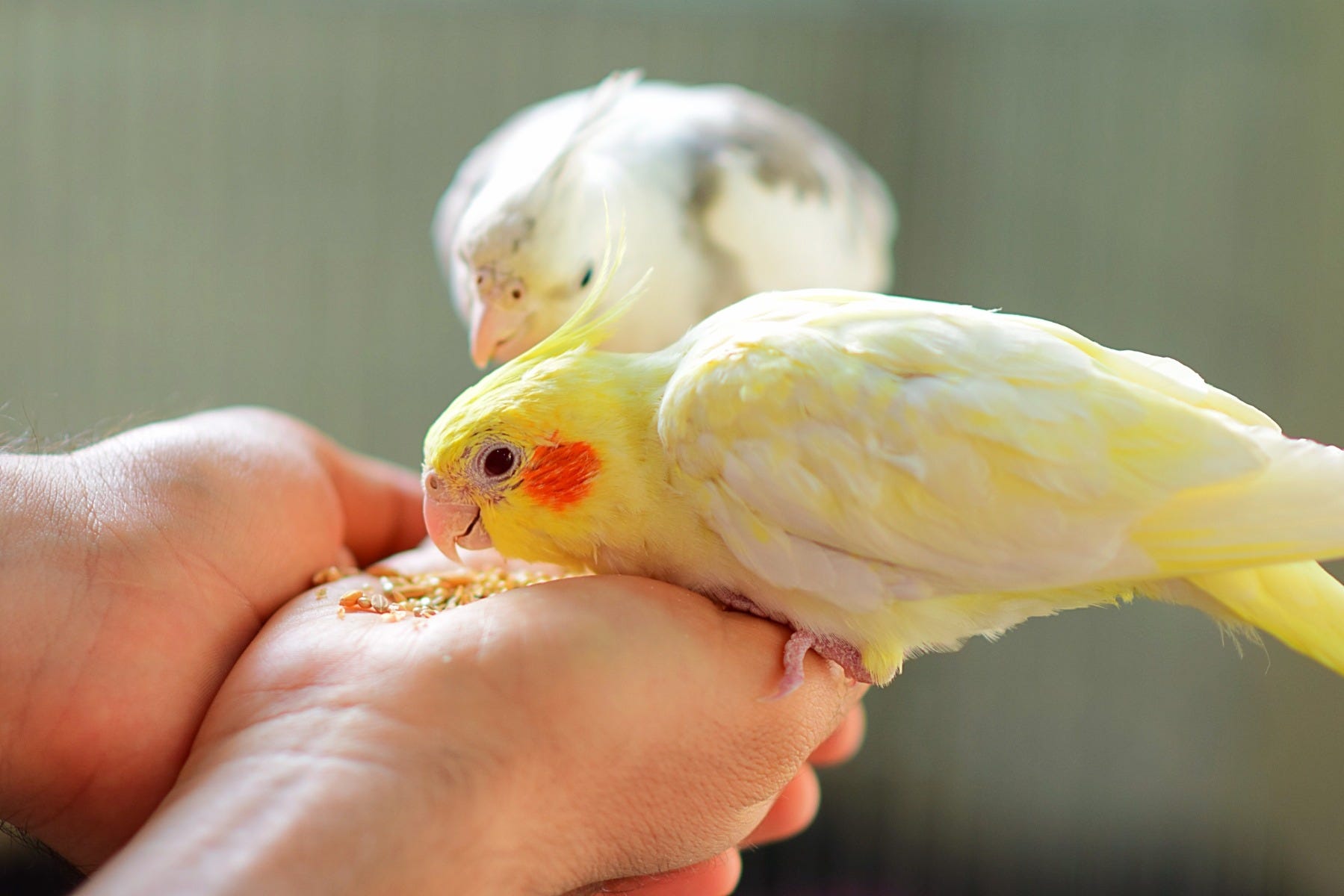
Diet
One of the most important parts of caring for any animal is ensuring they are getting adequate nutrition from their food, and understanding their dietary needs is an essential part of caring for a bird. Finding the right pet bird food will depend on what species of bird you are keeping as their differences in size and behaviour will have an effect on their nutritional requirements.
You should always clean out any remaining food in your bird’s dish before adding more and when introducing your bird to new foods, do so slowly and not all at once. You should also never starve your bird to try and get them to eat new food, as this can kill your bird in as little as 48 hours.
All birds need a balanced diet that is also stimulating and fun for them to mimic what it would be like for them to eat in the wild, where they have access to a whole range of fruits, grasses, seeds and flowers.
Your bird’s diet should consist of:
- Avian pellets - These are specifically formulated to ensure your pet is getting the right nutrients with ease and are especially good for picky eaters as they don’t allow space for them to pick and choose which parts they eat. Pellets are also available in a variety of shapes, sizes and flavours to find the perfect fit for your bird.
- Seeds - While bird seed is widely available, vets have suggested that it’s too high in fat to be the main focus of your bird's diet. That said, nuts and seeds make for a perfect treat or additive to your bird’s diet to keep things interesting!
- Fresh fruits and vegetables - Adding these to your bird's food ensures they’re getting a healthy and balanced diet. Some of the recommended fruits and veggies for birds are carrots, kale, apples, and bananas. Be careful, though, some fruit and veg can be toxic to birds.
- Vitamins and Minerals - What vitamins and minerals your bird needs will depend on their species as each type has their own requirements. That said, there are a number of pet bird supplements available to help provide these vital nutrients and if you’re unsure what your bird needs, consult your vet for recommendations.
Foods Toxic to Birds
There are a number of foods that might seem alright for your pet but are actually incredibly toxic, leading to poisoning symptoms or even death. Some of the foods you should never feed your pet bird include, but are not limited to:
- Toxic fruits and veg, including avocado, onion, garlic, scallions and more.
- Fruit with seeds or pits, such as apricots and cherries. If you remove the seeds, then these fruits are okay to feed your bird as it’s the pit or seed itself that contains small amounts of a cardiac-toxic cyanide compound that are toxic to birds.
- Caffeine, as it can increase heart rate, induce arrhythmias and hyperactivity, and even cause cardiac arrest in birds.
- Chocolate, which contains theobromine and caffeine, both of which are toxic to birds and can cause tremors and seizures, and even death for birds.
- Salt as it can disrupt the electrolyte and fluid balance in your bird, leading to excessive thirst, dehydration, kidney failure, and death.
- Fatty foods, as some birds are prone to developing high cholesterol and triglyceride levels which can lead to coronary artery disease. A little bit of fat is allowed in your bird's diet, but only as a treat and relative to their size.
- Human foods, particularly those with a lot of fat, sugar, artificial sweeteners, and preservatives as birds’ bodies aren’t designed to digest these things, which can result in dire consequences.
It’s always nice to offer our pets a tasty treat now and then, but always research what foods are toxic to birds before feeding them anything other than bird-specific food or treats.
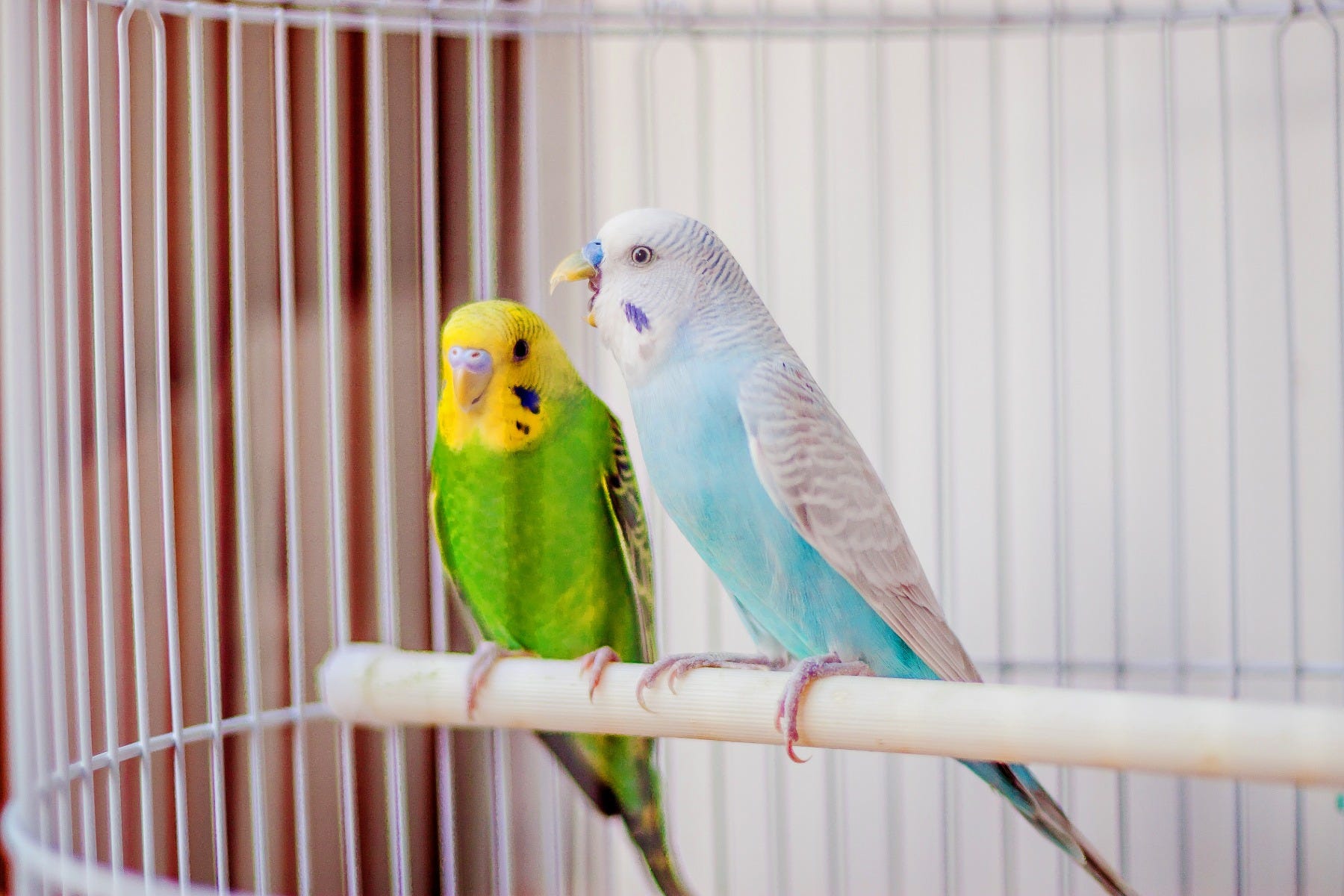
Healthcare
Birds can become sick like any other animal without the proper care, and sometimes, despite it. This is why it’s important to know how you can best care for your bird to keep them at optimum health throughout their lives.
Some of the most common illnesses pet birds are prone to are:
- Proventricular Dilatation Disease (also called Parrot Wasting Syndrome) is commonly caused by stress and includes symptoms like weight loss, vomiting and a swollen crop.
- Psittacosis (also called Parrot Fever) is a highly contagious disease that occurs among pet birds, symptoms of which include lethargy, eye infections or laboured breathing.
- Psittacine Beak and Feather Disease can affect all species of parrot and is a particular threat to young birds or those already struggling with another condition. The symptoms of this include loss of feathers, poor plumage and abnormal beak growth.
- Polyomavirus is a viral infection that may also cause poor or abnormal feather growth and can even cause problems with wing feathers or tail feather development. Common symptoms of Polyomavirus include poor appetite and diarrhoea.
- Candidiasis (also referred to as Thrush) is caused by a yeast infection, and the most common symptoms are white lesions in the bird’s mouth or throat as well as vomiting and loss of appetite.
- Giardiasis often causes diarrhoea and vomiting as well as dry itchy skin that may cause your bird to pluck at their feathers.
- Goiters are commonly caused by an iodine deficiency in your bird, symptoms oh which include an enlarged thyroid (the space at the base of your bird’s neck), difficulty or refusal to eat and a change in your bird voice.
Some of these diseases are easily preventable with proper care, but if your bird is showing any changes in your bird's behaviour should be taken seriously and followed up with a visit to a specialised avian vet as soon as possible.
Bird Plumage Care
Much like caring for a cat or dog’s skin and fur, as a bird owner, you need to maintain the condition of your pet bird’s plumage to maintain their well-being. Not only do a bird’s feathers protect their skin, but it is also what enables them to fly.
If your bird’s plumage is healthy, their feathers will be soft, smooth, full, vivid, and clean, which can often be handled through proper nutrition and hygiene practices. If any of these things aren’t up to standard, you may need to intervene through pet bird plumage treatments and supplements, or even visit your vet if your bird isn’t taking care of their plumage by themselves, as this may be a sign of an underlying condition.
Pet Bird Parasite Treatments
Like any other animal, pet birds are prone to parasite infestations, particularly from bird mites, intestinal worms and aviary lice. Many of these parasites can be prevented and treated with an appropriate bird mite and parasite treatment.
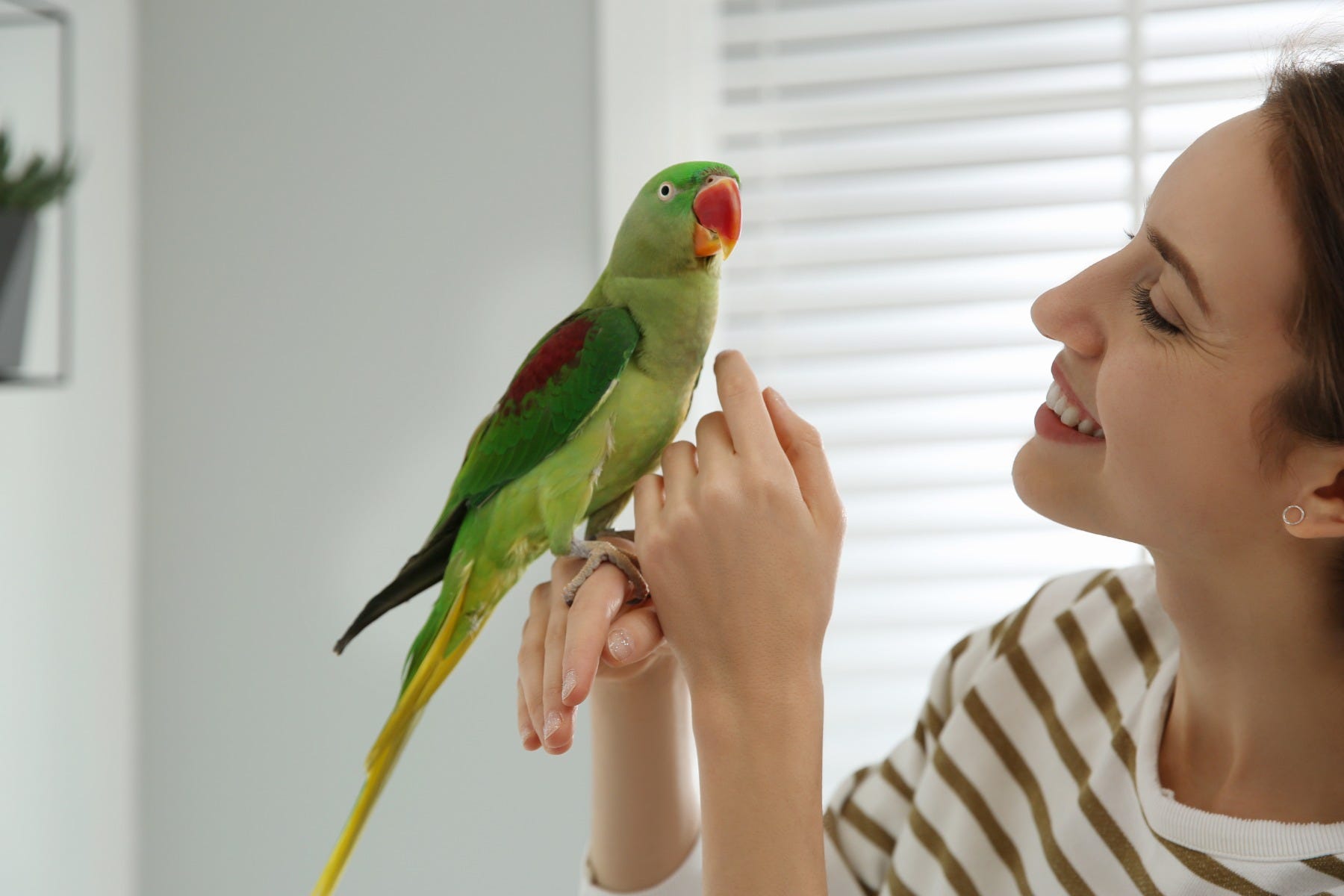
Handling a Pet Bird
Birds are naturally social creatures, something that makes them such a lovely addition to your family. While some birds love to be handled, others may prefer a more hands-off approach to being handled and may become stressed if you try to do so.
When handling your bird, it’s important to set a routine that is acceptable for both you and your bird. If they only like being handled for short periods or on their own terms, don’t push for more, and if you don’t have the time to handle your bird for a long time every day, try setting yourself smaller intervals for handling so as not to confuse your bird.
Here are some tips on the best way to handle a pet bird:
- Be gentle - birds, no matter their species, are delicate creatures and need to be handled as such. Holding your bird too tight, especially smaller birds, can cause damage to their bones, and internal organs which may even result in death.
- Do not grab your bird - Not only can this stress out or injure your bird, but it is not a pleasant way to be held, no matter what species of animal you are. Teaching your bird a simple “Step Up” command, where they can step from their enclosure to your finger or wrist, is a better and much safer way to keep you and your bird free of injury.
- Do not grab them by the wings, legs or tail - these parts of your bird are particularly delicate and can easily be damaged by improper handling.
- Use a towel to wrap your bird if you need to restrain them for any reason, such as nail clipping or administering medicine, but only for a short time. Towelling your bird should only be used when absolutely necessary, and doing so for too long can cause your bird a lot of stress as well as overheating.
Can a Bird Perch on your Shoulder?
Sadly, for any pirate enthusiasts out there, birds should not be allowed to perch on your shoulder. A bird’s claws can be very sharp, so having them close to your face and neck is not advised. Jewellery and any dangling, shiny things can also be irresistible to birds who won’t understand they’re not a toy. Birds keep their beaks clean by wiping them on things like wood, and this can leave them rather sharp (a lot like fingernails), and they can pack a nasty nip, no matter their size.
Should your bird bite or scratch you (intentionally or otherwise), you’re likely to react by flinching or trying to shake them off as an instinct. This can cause injury to your bird, so it’s best to keep them perched on your finger or wrist to avoid injury.
Enrichment and Exercise
As with any animal, regular exercise is important for birds to maintain a healthy weight and muscle mass. Besides, birds were built to fly, and they love to do so! When keeping a pet bird, always make sure you allow tie every day for them to be out of their cage for free flight in a safe environment, either indoors or in a bird aviary, so they can “spread their wings”.
Birds are also very intelligent animals who can quickly become stressed if they’re cooped up all the time. By providing enrichment through toys, games and even tricks, you can ensure that your bird stays active in both body and mind, helping them stay happy and healthy.
Some great enrichment exercises for your bird include:
- Toys that offer or stimulate movement, such as ladders, vines, rings and bungees, both in their cage and out of it.
- Foraging stations or toys in your bird’s cage at varying heights to encourage them to move around and display natural behaviours.
- Gently lift your bird up and down when they're perched securely on your finger or wrist to encourage them to flap their wings. Your bird will flap to maintain their balance, and this is a great way to encourage them to use their wings, especially if your bird is particularly lazy.
- Play games with your bird, like chase (with them as the chaser), hide and seek, and teach them tricks like step up, fetch, repeat and even dance! (Yes, birds can dance, and it’s both adorable and hilarious)
It’s no question that birds can make the most amazing pets for those who are ready and willing to put in the time to care for them properly. Not only are they beautiful creatures, but they are also whimsical, and each has their own unique personality making them extraordinary and rewarding pets.
If you would like advice on finding suitable food, parasite treatments or supplements for your bird, please get in touch with us, and a member of our team will be happy to help you and your feathered friend.
This post is an opinion and should only be used as a guide. You should discuss any change to your pet’s care or lifestyle thoroughly with your vet before starting any program or treatment.










